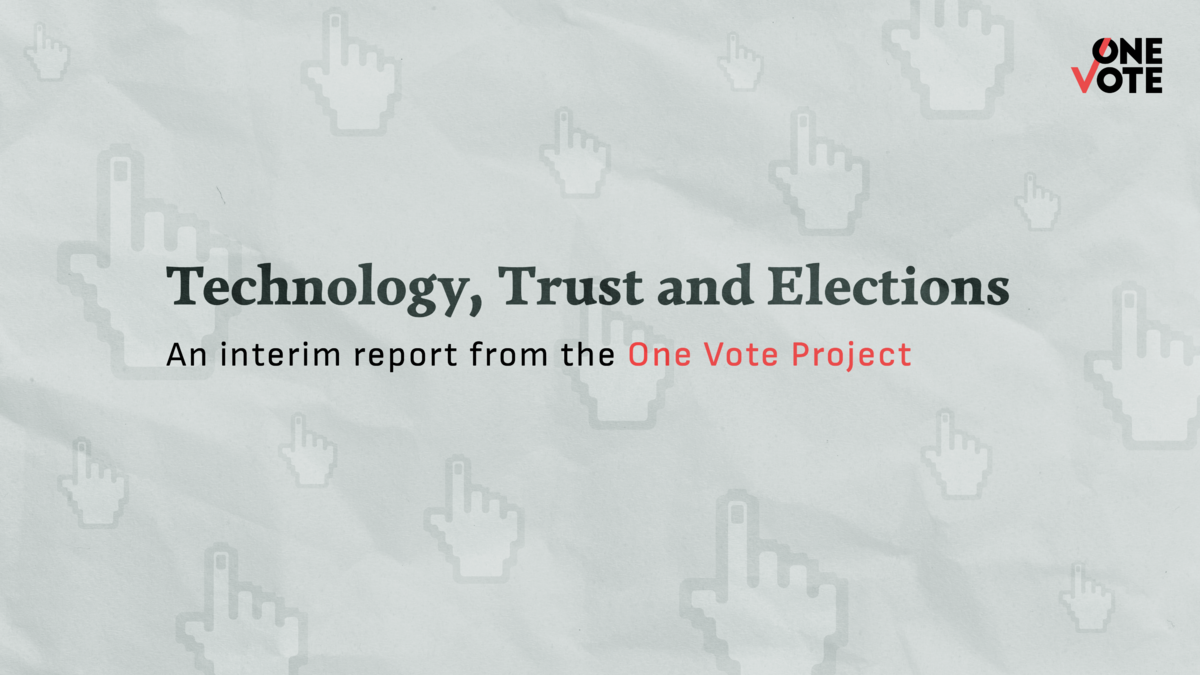
One Vote Report Chapter 4 : Conclusions
Submitted Nov 17, 2021
Conclusions
The ever-increasing presence of ‘apps’ and growth in the number of participants in the mobile software application ecosystems have created a perception of “there is an app for that”. Smart mobile devices connected to high speed data networks have resulted in ease of transacting a subset of everyday activities. There are various classes of transactions where the convenience is complemented with efficiency and reliability. We believe that such personal conclusions do not naturally lend themselves to the question of “can we then use an app to vote using the internet?” Our position is that while this might seem very convenient, such inferences are misplaced and need better examination prior to be widely available.
While we do not want to examine deeply the topic of integrity of elections, this interim report is intended to emphasize that security of the entire process is a necessary component which needs to be balanced with the desirable property of convenience. And that while there are a limited set of online voting applications and services which exist, the need to examine and report on the failure tolerance of such systems as well as reliability is important as they become part of public service software. With the increase in stakes attached to results of political contests, software dependent systems will be subject to increasingly complex and serious attacks which are likely to become more difficult to detect.
At a simple level, elections are contests within a democracy. As with any contest, if the rules of the game are modified or changed then it is necessary for all participants to be able to comprehend the new rules such that they leave no room for doubt. The direct experience of all citizens at the ballot box is a major contributing factor to whether the people are able to quickly and fully grasp any flaws in the process.1 Thus, we provide a set of critical contexts in the form of checkpoints through which to evaluate any introduction of technology into existing processes such as elections, and thereafter to determine how citizens can collaborate and participate in public debates.
Our conclusion is that without these foundational aspects being put in place prior to the introduction of new technological innovations, elections are likely to be insecure, attacked and the electorate will gradually lose trust in the process, and thus electoral democracy itself.
Norris, Pippa - Why Electoral Integrity Matters. (Cambridge University Press, 2014) ↩︎
Comments
Hosted by
One Vote is an initiative to examine a diverse set of inputs and perspectives regarding the introduction and evolution of technology as part of the elections. We use public discourse, deliberations and reports to raise awareness about this topic for a lay audience. One Vote is designed to enable cr…
more



{{ gettext('Login to leave a comment') }}
{{ gettext('Post a comment…') }}{{ errorMsg }}
{{ gettext('No comments posted yet') }}